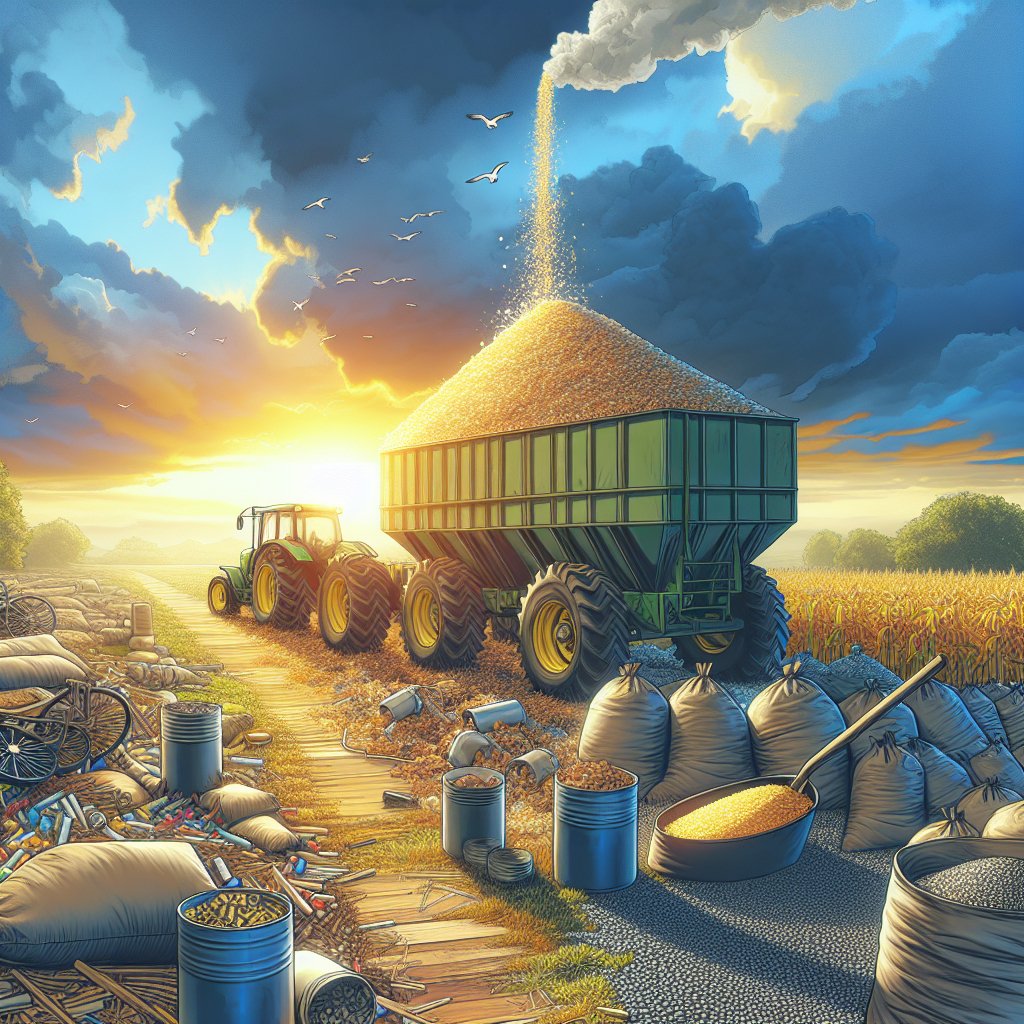
Farm waste, often seen as a byproduct of agricultural activities, holds immense potential in creating natural fertilizers that can enhance soil fertility and promote sustainable farming practices. By effectively utilizing farm waste, farmers can reduce their dependency on chemical fertilizers, lower production costs, and contribute to environmental conservation. This article explores various methods and tips for transforming farm waste into valuable natural fertilizers.
Understanding Farm Waste and Its Potential
Farm waste encompasses a wide range of materials, including crop residues, animal manure, and other organic matter generated during farming activities. These materials, if not managed properly, can lead to environmental pollution and health hazards. However, when processed and utilized effectively, farm waste can be converted into nutrient-rich fertilizers that improve soil health and boost crop yields.
One of the primary components of farm waste is animal manure, which is rich in essential nutrients such as nitrogen, phosphorus, and potassium. These nutrients are vital for plant growth and development. Additionally, crop residues, such as straw, husks, and leaves, contain organic matter that can enhance soil structure and water retention capacity. By understanding the composition and potential of farm waste, farmers can make informed decisions on how to best utilize these resources.
Methods for Converting Farm Waste into Natural Fertilizers
There are several methods available for converting farm waste into natural fertilizers, each with its own set of advantages and considerations. The choice of method depends on factors such as the type of farm waste, available resources, and specific farming needs. Below are some popular methods for creating natural fertilizers from farm waste:
Composting
Composting is a widely used method for converting organic waste into nutrient-rich compost. This process involves the decomposition of organic matter by microorganisms under controlled conditions. To create compost, farmers can mix animal manure, crop residues, and other organic materials in a compost pile or bin. It is important to maintain the right balance of carbon and nitrogen, as well as adequate moisture and aeration, to facilitate the decomposition process.
Composting not only reduces the volume of farm waste but also produces a stable and nutrient-rich product that can be applied to fields as a natural fertilizer. The resulting compost improves soil structure, enhances microbial activity, and provides a slow-release source of nutrients for plants.
Vermicomposting
Vermicomposting is a specialized form of composting that involves the use of earthworms to break down organic waste. This method is particularly effective for processing animal manure and kitchen waste. Earthworms consume the organic material and excrete nutrient-rich castings, which serve as an excellent natural fertilizer.
Vermicomposting is a relatively low-maintenance process that can be conducted on a small or large scale. The resulting vermicompost is rich in beneficial microorganisms and nutrients, making it an ideal soil amendment for improving plant growth and health.
Anaerobic Digestion
Anaerobic digestion is a process that involves the breakdown of organic matter by microorganisms in the absence of oxygen. This method is commonly used for processing animal manure and other high-moisture farm waste. The process produces biogas, which can be used as a renewable energy source, and digestate, a nutrient-rich byproduct that can be used as a natural fertilizer.
Anaerobic digestion offers the dual benefit of waste management and energy production. The digestate can be applied to fields to improve soil fertility, while the biogas can be used to power farm operations or generate electricity.
Best Practices for Using Natural Fertilizers
To maximize the benefits of natural fertilizers derived from farm waste, it is important to follow best practices for their application. Proper management and application techniques can enhance the effectiveness of natural fertilizers and minimize potential environmental impacts.
Soil Testing and Nutrient Management
Before applying natural fertilizers, it is essential to conduct soil testing to determine the nutrient needs of the soil. Soil tests provide valuable information on soil pH, nutrient levels, and organic matter content. Based on the results, farmers can tailor their fertilizer application to meet the specific needs of their crops and avoid over-application, which can lead to nutrient runoff and pollution.
Implementing a nutrient management plan can help farmers optimize the use of natural fertilizers and ensure that crops receive the right balance of nutrients throughout the growing season. This approach promotes efficient nutrient use and reduces the risk of environmental contamination.
Timing and Application Techniques
The timing and method of fertilizer application play a crucial role in maximizing nutrient uptake by plants. Natural fertilizers should be applied at the right time to coincide with the crop’s nutrient demand. For example, applying fertilizers during the early stages of plant growth can support root development and overall plant health.
Farmers can use various application techniques, such as broadcasting, banding, or side-dressing, depending on the type of fertilizer and crop requirements. Incorporating fertilizers into the soil can enhance nutrient availability and reduce losses due to volatilization or runoff.
Environmental and Economic Benefits
Utilizing farm waste to create natural fertilizers offers numerous environmental and economic benefits. By reducing reliance on chemical fertilizers, farmers can lower production costs and decrease the risk of soil and water pollution. Natural fertilizers also contribute to improved soil health, which can enhance crop resilience and productivity over time.
Moreover, the use of natural fertilizers supports sustainable farming practices by promoting biodiversity and reducing greenhouse gas emissions. By recycling farm waste into valuable resources, farmers can contribute to a circular economy and foster a more sustainable agricultural system.
Conclusion
Transforming farm waste into natural fertilizers is a practical and sustainable approach to enhancing soil fertility and promoting environmentally friendly farming practices. By understanding the potential of farm waste and implementing effective conversion methods, farmers can create valuable fertilizers that support healthy crop growth and contribute to long-term agricultural sustainability. Embracing these practices not only benefits individual farmers but also contributes to the broader goal of sustainable food production and environmental conservation.

